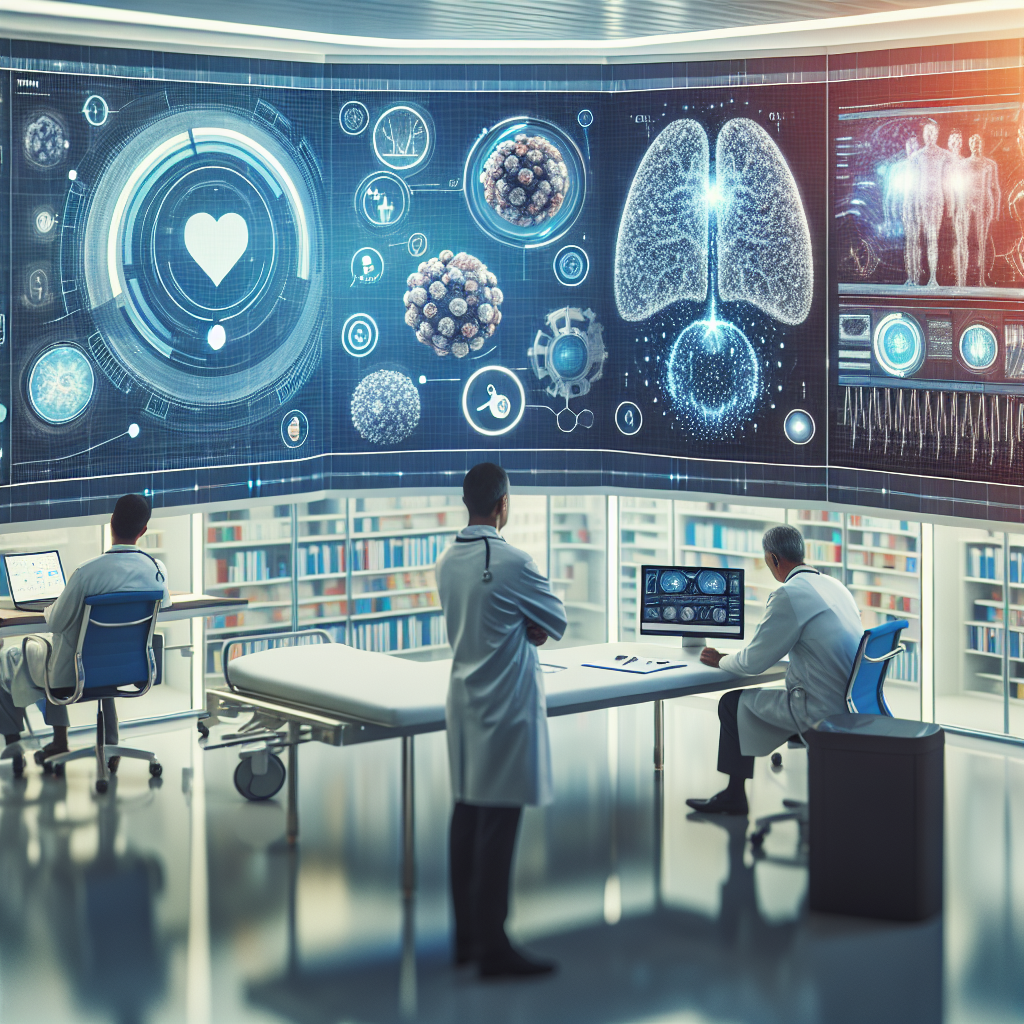AI in Healthcare: Enhancing Clinical Decision Making
Artificial Intelligence (AI) has made significant advancements in various industries in recent years, and healthcare is no exception. AI has the potential to revolutionize the way healthcare is delivered, particularly in the realm of clinical decision making. By harnessing the power of AI, healthcare providers can improve patient outcomes, increase efficiency, and reduce costs. In this article, we will explore how AI is enhancing clinical decision making in healthcare and the benefits it brings to both patients and healthcare providers.
How AI is Enhancing Clinical Decision Making
AI technologies, such as machine learning and natural language processing, are being used to analyze vast amounts of healthcare data and provide valuable insights to healthcare providers. These insights can help providers make more informed decisions about patient care, diagnosis, treatment, and outcomes. Here are some ways in which AI is enhancing clinical decision making in healthcare:
1. Predictive Analytics: AI algorithms can analyze patient data, such as medical history, lab results, and imaging studies, to predict the likelihood of certain outcomes, such as hospital readmissions or disease progression. This information can help healthcare providers intervene early and prevent adverse events.
2. Personalized Medicine: AI can analyze genetic and clinical data to tailor treatment plans to individual patients. By considering each patient’s unique characteristics and needs, healthcare providers can deliver more effective and personalized care.
3. Image Analysis: AI-powered algorithms can analyze medical images, such as X-rays, MRIs, and CT scans, to assist radiologists in detecting abnormalities and making accurate diagnoses. This technology can help reduce errors and improve patient outcomes.
4. Natural Language Processing: AI can analyze unstructured data, such as clinical notes and medical literature, to extract valuable information and support clinical decision making. This technology can help healthcare providers stay up-to-date with the latest research and guidelines.
5. Remote Monitoring: AI-powered devices, such as wearable sensors and smartwatches, can continuously monitor patients’ vital signs and alert healthcare providers to any abnormalities. This technology can help prevent complications and improve patient outcomes, particularly for patients with chronic conditions.
Benefits of AI in Healthcare
The use of AI in healthcare offers numerous benefits to both patients and healthcare providers. Some of the key benefits include:
1. Improved Diagnosis: AI algorithms can analyze patient data more quickly and accurately than humans, leading to faster and more accurate diagnoses. This can help healthcare providers develop more effective treatment plans and improve patient outcomes.
2. Enhanced Treatment Planning: By analyzing patient data and medical literature, AI can help healthcare providers develop personalized treatment plans that are tailored to each patient’s unique needs. This can lead to better outcomes and reduced side effects.
3. Increased Efficiency: AI technologies can automate repetitive tasks, such as data entry and documentation, freeing up healthcare providers to focus on patient care. This can lead to increased efficiency and reduced administrative burden.
4. Cost Savings: By improving diagnosis and treatment planning, AI can help reduce healthcare costs by preventing unnecessary tests and procedures. This can lead to cost savings for both patients and healthcare providers.
5. Access to Expertise: AI technologies can provide healthcare providers with access to the latest research and guidelines, enabling them to make more informed decisions about patient care. This can help improve the quality of care and patient outcomes.
FAQs
Q: Is AI replacing healthcare providers?
A: No, AI is not replacing healthcare providers. Instead, AI is being used to support healthcare providers in making more informed decisions about patient care. Healthcare providers will continue to play a crucial role in delivering personalized and compassionate care to patients.
Q: Is AI secure and protected in healthcare?
A: Yes, healthcare organizations take data security and privacy seriously when implementing AI technologies. They adhere to strict regulations, such as HIPAA, to protect patient data and ensure that AI systems are secure and compliant.
Q: How can patients benefit from AI in healthcare?
A: Patients can benefit from AI in healthcare by receiving more personalized and effective care. AI technologies can help healthcare providers make more accurate diagnoses, develop tailored treatment plans, and prevent adverse events, leading to improved patient outcomes.
Q: What are the challenges of implementing AI in healthcare?
A: Some of the challenges of implementing AI in healthcare include data privacy concerns, regulatory hurdles, integration with existing systems, and resistance to change. Healthcare organizations must address these challenges to successfully implement AI technologies and realize their full potential.
In conclusion, AI is playing an increasingly important role in enhancing clinical decision making in healthcare. By leveraging the power of AI, healthcare providers can improve patient outcomes, increase efficiency, and reduce costs. As AI technologies continue to evolve, we can expect to see even greater advancements in healthcare delivery and patient care.

